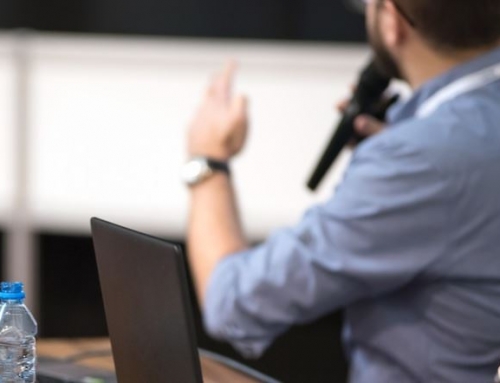Face-to-face simultaneous translation Brazil and the return to face-to-face jobs; companies are starting to prepare for the return to face-to-face work. Even with the advance of vaccination in Brazil, it is a very complicated situation. The truth is, not everyone is feeling safe going back to the office. The impacts of this feeling of insecurity can affect the company’s productivity and work environment. Before taking any decision, it is important to assess this moment and involve employees in the decision. And interpreters who do simultaneous translation, how will these professionals work in the future?

Face-to-face Simultaneous Translation Brazil
The first point to make clear is that companies can, indeed, call on their employees to return to face-to-face work. It is important to know that Provisional Measure No. 1,046 of April 27, 2021, which provides for labor measures to fight the Covid-19 pandemic, is still valid. This implies that companies can still make changes in the work regime without the employee’s agreement, as long as the employee is notified at least 48 hours in advance.
What if the employee refuses to return to face-to-face work? In a scenario where we still have a high death toll, not the entire population has been vaccinated and there is always the fear of new variants, not all employees are happy to go back to work. The truth is, employees are forced to return to work under the risk of being fired, as their absences can lead to abandonment of work.
How are people feeling about the return to face-to-face work? The remote model brought benefits to companies, not to mention energy, internet and transportation voucher savings. The numbers show a tendency of collaborators to prefer a remote or even a hybrid model.
What security measures should companies adopt in their face-to-face work? Returning to face-to-face work is surrounded by health protection measures and these are the company’s responsibility. Rules of coexistence and hygiene must be adopted in a clear way for everyone. It is the organization’s responsibility to educate its employees about all prevention protocols adopted in the company, including outsourced workers and other organizations that enter the establishment.
Interpreters; for companies or events that use simultaneous translation booths, hygiene requirements are very important; ventilated booths with doors for one person, preferably, and if not possible, with an acrylic or plastic partition between the two interpreters. Sanitizing gel must be available.
Why is the hybrid model the most suitable in the post-pandemic? During this pandemic, it was proven that working remotely is not synonymous with lost productivity. People prefer the freedom to work directly from their homes, facilitating their routines and saving time that would otherwise be lost in traffic.
Thus, the hybrid model presents itself as an excellent compromise for everyone involved. For interpreters working with simultaneous translation this hybrid model is also perfect; many events can continue to be carried out through the zoom platform, without the need to leave home, while other jobs will necessarily be in person, which is positive for meeting colleagues and getting back to socializing.
Intérpretes Profissionais will therefore work with a hybrid model, both face-to-face and remote for simultaneous translation jobs.






Leave A Comment